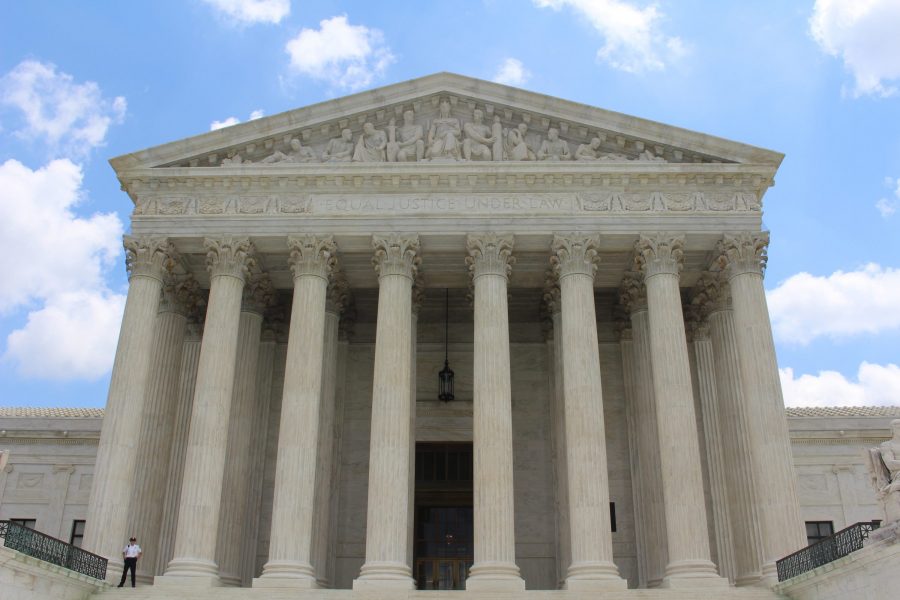
Photo by Claire Anderson on Unsplash
Supreme Court Rules Apple Antitrust Case Can Continue
You may have seen headlines about the US Supreme Court ruling against Apple, but it’s less important than you might think. As The Verge notes, the Supreme Court has merely indicated that an antitrust case against Apple can proceed, denying Apple’s claim that iOS users buy apps from developers (instead of Apple) and are thus “indirect purchasers” who lack standing to file antitrust cases. The next stage of the antitrust case will prove more interesting because it claims the App Store is an unlawful monopoly that Apple exploits to charge a mandatory fee in the form of its 30% commission. If Apple were to lose, it could be forced to repay users who were “overcharged” or allow alternate methods of purchasing iOS apps. Even more worrying for Apple and other tech companies who run similar app stores is the idea in political circles that tech companies wield too much power and should be broken up (see “Big Tech Attracts Antitrust Attention from Senator Elizabeth Warren,” 12 March 2019).
What I’d like to hear form somebody versed in antitrust law is why Apple can’t just point out that anybody who buys an iPhone knows from day 1 that they cannot get apps other than through Apple’s store and by Apple’s terms. If you don’t want that, get an Android. I see how that argument doesn’t work when you have a de-facto monopoly (like MS on the desktop in the 90s), but iOS clearly doesn’t have that, not even here in the States. So anybody who doesn’t like their walled garden can choose a competitor’s, right?
I think that’s Apple’s primary argument, in fact.
If that argument fails, then there will be a slew of similar lawsuits against GM by Ford owners (and vice versa) because they can’t use Ford parts in their GM vehicle.
Besides, those that don’t like the walled garden can also jailbreak their iPhone (though at a loss of warranty and updates).
Does iOS jail breaking still work? I thought Apple tightened things up a lot, I never hear about it anymore.
Also, there’s no DMCA exemption for phone jailbreaking so it’s not a good argument in court.
I agree the case makes no sense because Apple doesn’t have a monopoly. Will Walmart be required to stock Target products in their store? I would like to be free to install any app I want on my iPhone but I don’t think there’s a legal basis for requiring it.
I think one place Apple may be vulnerable will be the policy that disallows companies from selling eBooks or adding subscriptions outside of the App Store. Amazon cannot even tell you that you can open Safari to purchase a Kindle eBook, much less sell books within the app itself. Netflix was not allowed to sign up new subscribers within their own app without using the App Store’s payment method, rather than their own.
Free apps are offered in the App Store which collect revenue from their own advertisements without paying Apple a percentage of the ad revenue. It seems to me that a company like Amazon or Netflix or Hulu or Spotify should be able to sell eBooks or collect revenue from the subscriptions paid by their own customers without paying Apple a cut (unless, of course, they chose to use Apple’s App Store payment method.)
Good question—I had to check, since I haven’t heard about it in ages either. It does still seem to be possible.
That reminded me that I thought I heard Cydia had been shut down, but it seems more complex than just that.
I agree that this feels like the place where Apple is most vulnerable.
Apple did have an an in-app iAd ad sales network a few years ago, but Apple was never interested in, or good at, ad sales. So they folded it and decided to take a page from hugely popular and profitable app install programs from Facebook, Instagram. It’s been working out very well for them:
https://searchads.apple.com/advanced/
It’s been so successful that Apple set up a search ads program for smaller, newer and lower budget app developers:
https://searchads.apple.com/basic/
And Apple takes a 30% cut from in-app purchases. It’s why Amazon won’t let you buy Kindle books in their iOS app, and you can’t subscribe to Netflix in it:
https://developer.apple.com/in-app-purchase/
What about all the people who buy iPhones because they believe having Apple as the tyrannical gatekeeper makes the phone safer? And more stable with somewhat less tracking. I have friends who just switched from Android for those very reasons.